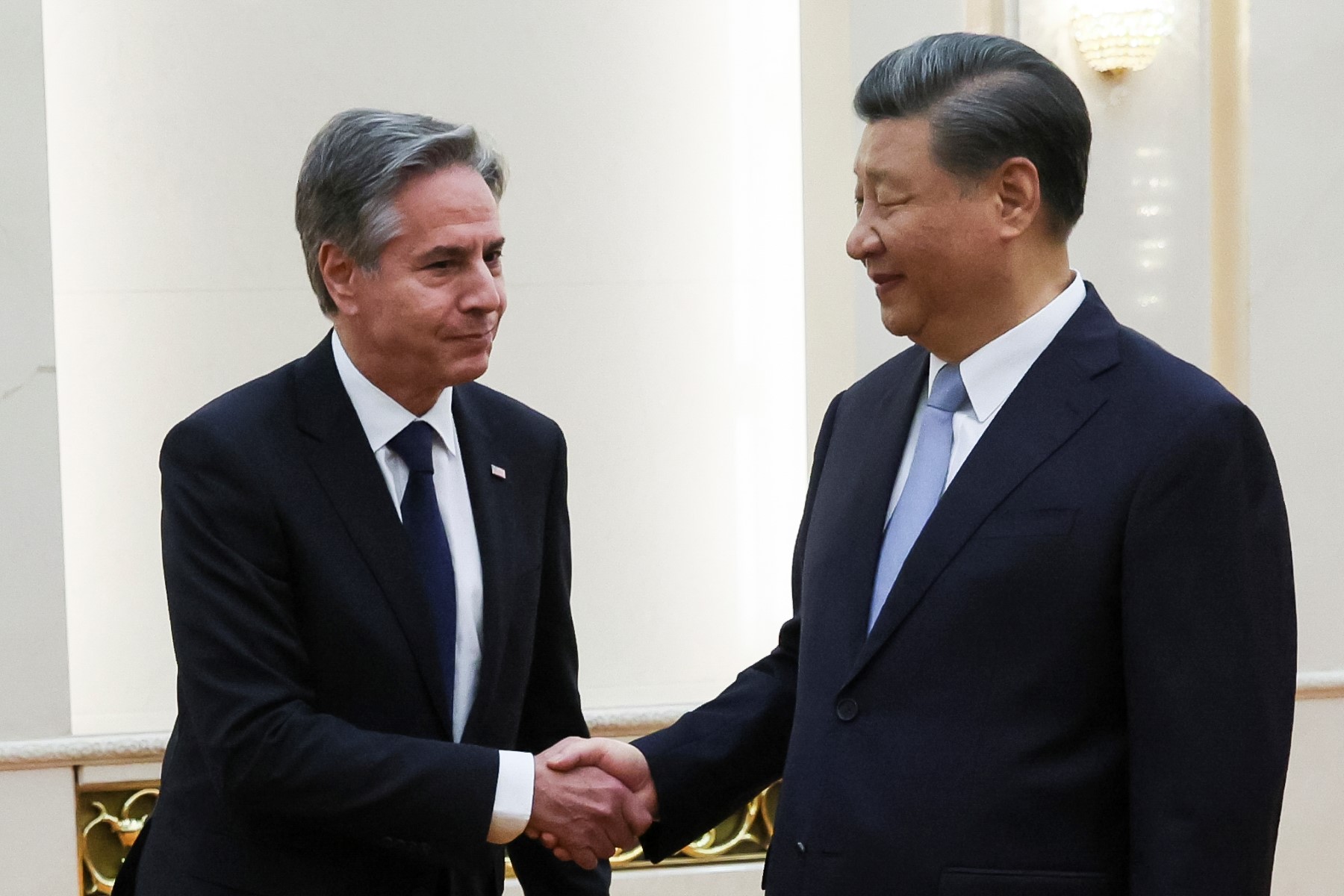US, China both want to ‘stabilise’ ties – Blinken
US Secretary of State Antony Blinken said Monday he agreed with China’s leadership on the need to “stabilise” relations but that he was “clear-eyed” on vast disagreements. “In every meeting, I stressed that direct engagement and sustained communication at senior levels is the best way to responsibly manage differences and ensure that competition does not […]

US Secretary of State Antony Blinken (L) shakes hands with China’s President Xi Jinping at the Great Hall of the People in Beijing on June 19, 2023. – President Xi Jinping hosted Antony Blinken for talks in Beijing on June 19, capping two days of high-level talks by the US secretary of state with Chinese officials. (Photo by Leah MILLIS / POOL / AFP)
US Secretary of State Antony Blinken said Monday he agreed with China’s leadership on the need to “stabilise” relations but that he was “clear-eyed” on vast disagreements.
“In every meeting, I stressed that direct engagement and sustained communication at senior levels is the best way to responsibly manage differences and ensure that competition does not veer into conflict,” Blinken told reporters in Beijing after two days of talks.
“I heard the same from my Chinese counterparts. We both agree on the need to stabilise our relationship.”
Rejecting a major line of criticism from China, Blinken insisted that the United States – which has banned exports of high-end semiconductors – was not seeking the “economic containment” of Beijing.
- I never compromised my office, Justice Bulkachuwa breaks silence
- Shortage of lawyers affecting justice delivery – Legal Aid
But Blinken said the United States was “clear-eyed about the challenges” posed by China – after the growing rivalry was identified by President Joe Biden’s administration as the greatest potential threat.
“We have no illusions about the challenges of managing this relationship. There are many issues on which we profoundly – even vehemently – disagree,” Blinken said.
China has pointed to Taiwan as a main area of disagreement. Beijing claims the self-governing democracy, which buys weapons from Washington, and has not ruled out using force to seize the island.
Blinken repeated that the United States does not support the independence of Taiwan and stood by its stance of maintaining the status quo.
“At the same time, we and many others have deep concerns about some of the provocative actions that China has taken in recent years going back to 2016,” Blinken said.
